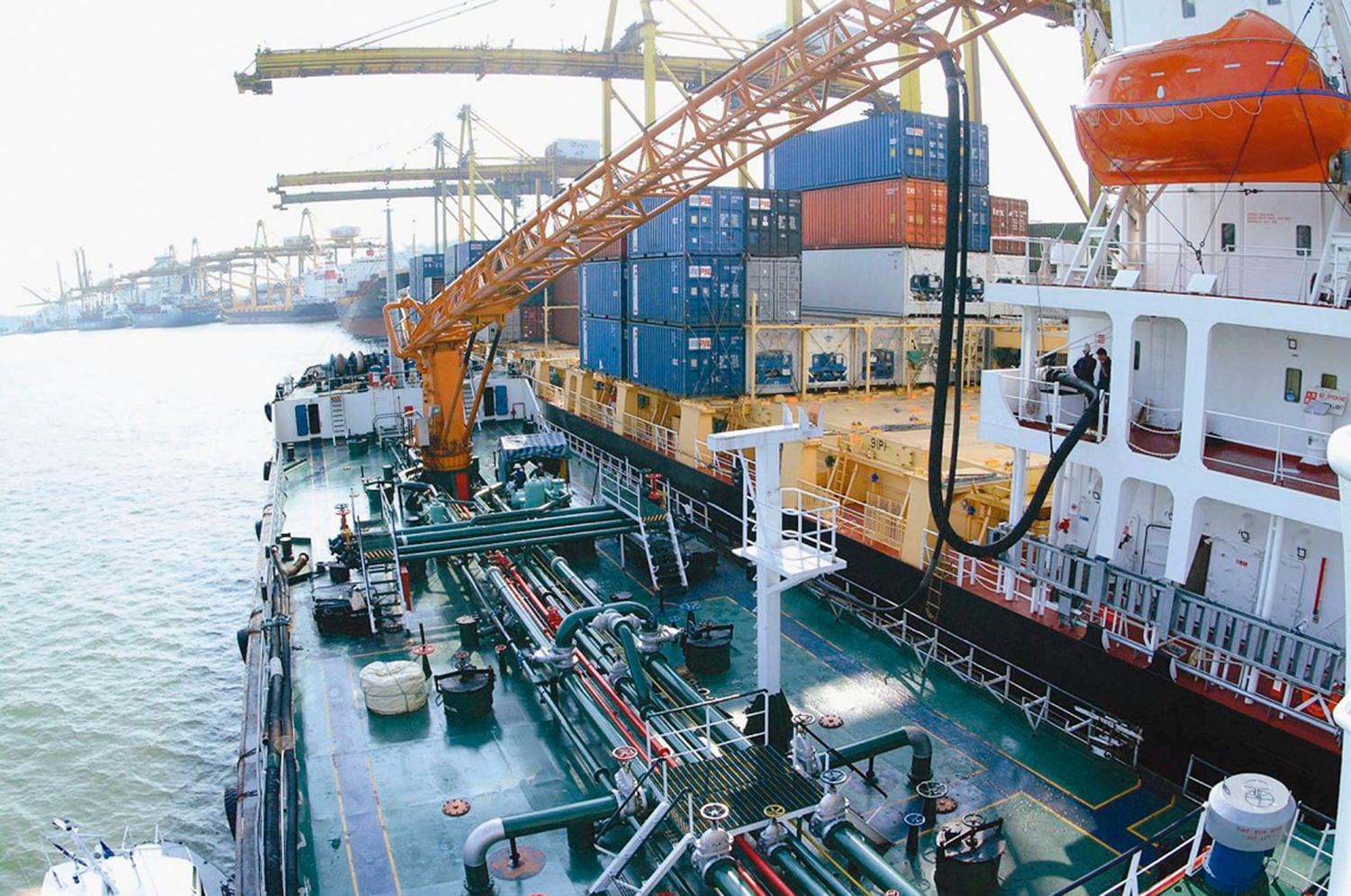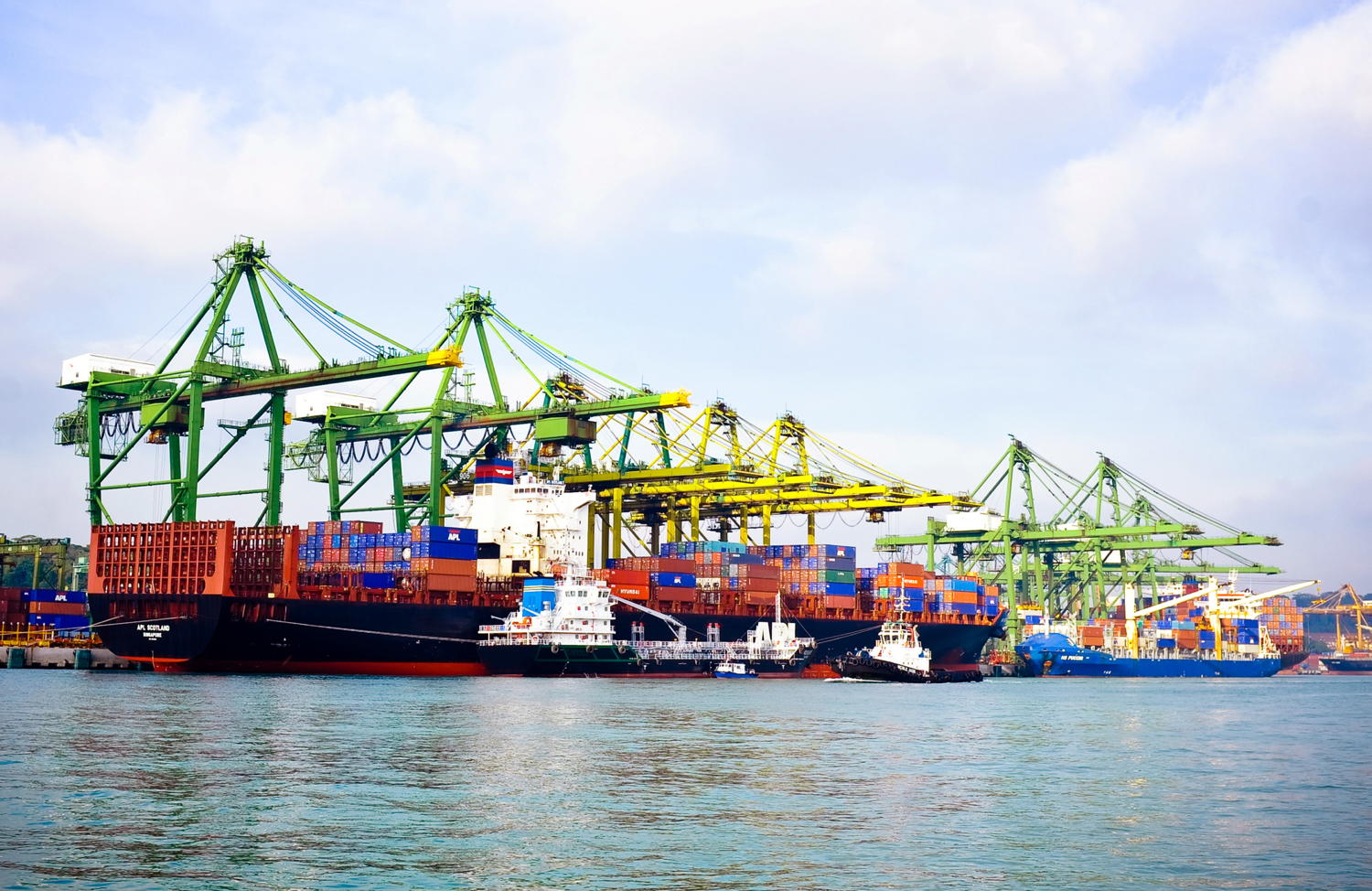Higher demand for cleaner fuel and market volatility tip bunker market in favour of big boys. Several suppliers to fall from grace, reports Patrick Lee
Demand for Low-Sulphur Fuel Oil (LSFO) increased in the lead-up to the implementation of the International Maritime Organisation’s[ds_preview] stricter limits on emissions on 1 January. And the higher costs involved in procuring the more expensive marine fuel have forced out the less liquid traders and suppliers, enabling larger companies with deeper pockets to gain market share.
In Singapore, the world’s largest bunkering port by sales volume, as at 2 April 2020, there are 44 accredited physical bunker suppliers, down from 55 at the start of 2019. Back in 2010, the Maritime and Port Authority (MPA) had 80 licensed bunker suppliers.
Among the high-profile industry departures is Brightoil Petroleum (Singapore), a subsidiary of Brightoil Petroleum (Holdings), which is publicly listed in Hong Kong and Shenzhen. On 31 January, Brightoil Petroleum disclosed that its Singapore subsidiary had ceased physical bunker deliveries, leaving the group to focus on its upstream oil business. Around the same time, the company announced unaudited figures for fiscal 2017 to 2019 (years ending on 30 June), showing losses of 200mill. HK$ and 2.55 bn HK$ in fiscal 2018 and 2019, respectively, after a profitable fiscal 2017.
Brightoil is not the only player to fall from grace. In June 2019, the MPA suspended Inter-Pacific Petroleum’s physical bunker supply licence, after a bunker barge operated by the company was found to have a tampered mass flow meter (MFM), which measures the fuel density, to ensure the right amount of bunkers are delivered. Inter-Pacific Petroleum’s operations were effectively ended and, in August 2019, the company was placed under court protection. Inter-Pacific Petroleum’s licence was revoked four months later.
Shrinking pool of suppliers
The shrinking pool of bunker suppliers handed more market share to the large and sturdier players. In 2019, PetroChina International, a unit of Chinese state-owned oil and gas group China National Petroleum Corporation, had the highest volume of bunker sales in Singapore, followed by homegrown companies Sentek Marine & Trading, Ocean Bunkering Services, and Equatorial Marine Fuel Management Services.
Ranked fifth to ninth respectively were Shell Eastern Trading, Total Marine Fuels, Glencore Singapore, BP Singapore, and Maersk Oil Trading Singapore – all major interational oil companies.
Meanwhile, major commodity trading groups Trafigura and Mercuria, and UAE-based refiner GP Global (formerly known as Gulf Petrochem) have reportedly applied for physical bunker supplier licences in Singapore.
In a sign that Trafigura was planning a big push into marine fuels, the Dutch trader had, on 3 August 2019, launched TFG Marine, a joint bunkering venture with Frontline and Golden Ocean Group, respectively, the tanker and dry bulk businesses of John Fredriksen’s empire.
TFG Marine is owned by Trafigura (75%), Frontline (15%) and Golden Ocean (10%). The joint venture will be Trafigura’s main bunker trading entity, and procure bunkers exclusively for Frontline and Golden Ocean.
Trafigura’s co-head of bunkering, Kenneth Dam, said, »Over the past 24 months, Trafigura has been growing its physical bunkering business worldwide. We believe that marine fuel market disruptions will be brought on by the implementation of IMO 2020 regulations and that the JV’s increased base volumes and greater access to both infrastructure and credit will provide increasingly competitive bunkering supply services to our customers.«
In mid-April, the MPA disclosed that is has awarded two new bunker supplier licences to Minerva Bunkering and TFG Marine –a step »which will consolidate Singapore’s position as the global bunkering and oil trading hub.« Both will also be required to each operate at least two clean energy dual-fuelled bunker barges. MPA added »Minerva and TFG are related entities by shareholding to Mercuria Group and Trafigura respectively, two of the world’s largest independent energy trading companies. Their entry will further strengthen Singapore’s eco-system of global players which includes oil majors (Shell and BP), national oil companies (Sinopec and Aramco) and other independent trading companies (Glencore, Vitol and Mitsui).«
New Entrant
Another new entrant that is backed by a larger and financially strong group is Hyundai Fuels, which commenced bunker trading in Singapore in January 2019. The company is a subsidiary of Hyundai Corporation, a spin-of from the Hyundai conglomerate in South Korea. Underpinning Hyundai Fuels’ trading activity is its affiliated oil refiner, Hyundai Oilbank, its main supplier.
A Hyundai Fuels representative told HANSA, »Most of our customers are in South Korea, but we’d like to expand our market through Singapore as it is the largest bunkering market. We know that the Singapore market is competitive but we think that our relationship with Hyundai Oilbank gives us an advantage.«
Oil prices collapsed to an 18-year low of around 20$ a barrel in March, as the Covid-19 pandemic depressed energy demand. The Hyundai Fuels representative continued, »There will always be upcycles and downcycles. What’s important is to build up cash reserves in the good times so you can ride through the bad times.« In April, major Swiss commodity trader Vitol fully acquired Sinanju Tankers Holdings, another physical bunker supplier in Singapore. The acquired entity has been renamed Vitol Bunkers (S) Pte Ltd, 15 bunker tankers, including Singapore’s first LNG-powered dual-fuel bunker tanker.
Kho Hui Meng, President and CEO of Vitol Asia said, »With the acquired entity’s valuable expertise in bunker tanker operations and Vitol’s existing strength on the bunker oil supply side, Vitol Bunkers will be in a strong position to provide a high quality, seamless ›end to end‹ delivered bunker supply service in Singapore and internationally.«
Vitol, the world’s largest independent oil trader, is also building a small oil refinery at its storage terminal in Malaysia to supply low-sulphur fuel oil for ships.
The facility will be able to process 30,000 barrels per day and is located just opposite the Port of Tanjung Pelepas, overlooking western Singapore. The project is expected to add to Vitol’s refinery in Fujairah in providing low-sulphur fuel oil.
Local bunkering consultant Simon Neo, formerly the International Bunker Industry Association’s regional manager (Asia), told HANSA that major oil players are tapping on their resources for an advantage. Neo said, »The big companies are entering the market because they see opportunities, as physical suppliers can no longer undercut each other. Also, with IMO 2020, the big boys can leverage on their product quality.«
IMO 2020 is a game changer for not only the big players. The drop in oil price won’t affect how they want to venture into the bunker industry. It’s the profit margin they look at and the supply chain. Neo said, »In Singapore, if physical suppliers don’t change the way they operate, they’ll have trouble.«
Patrick Lee





















